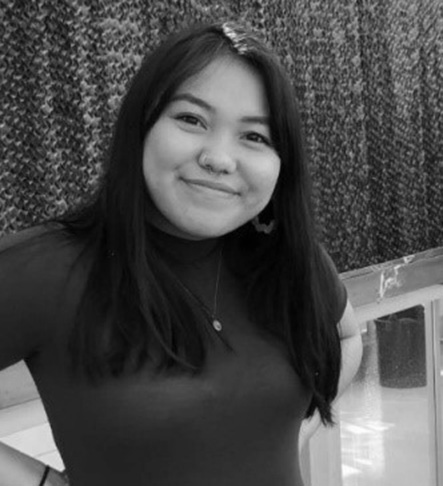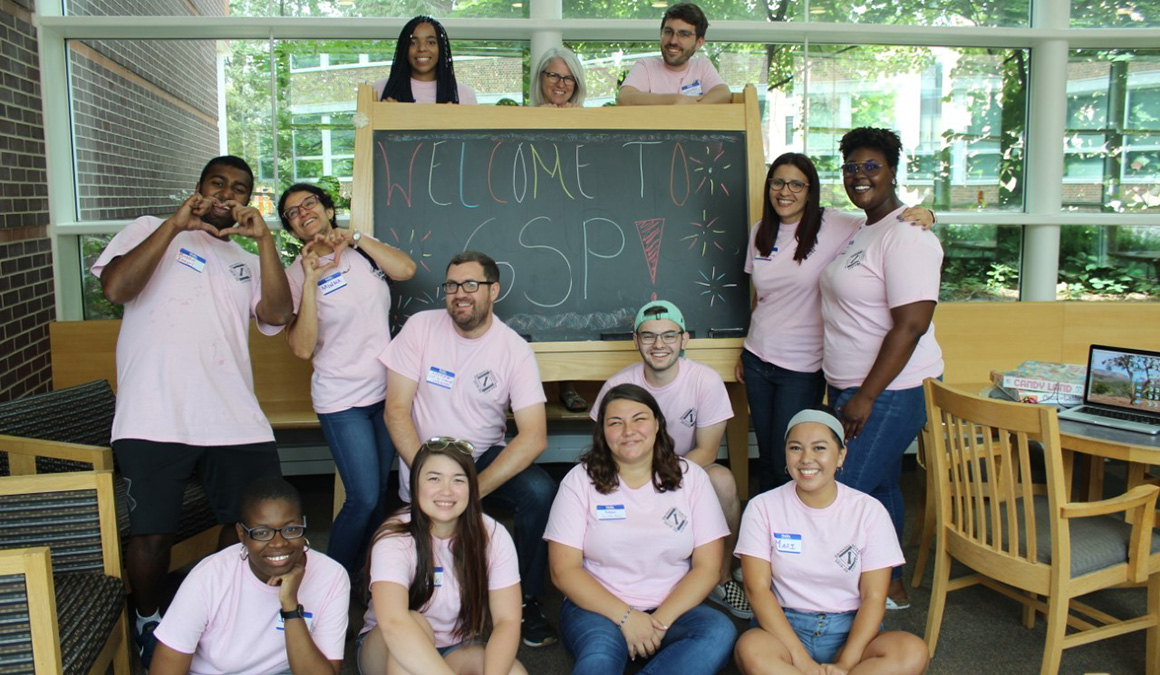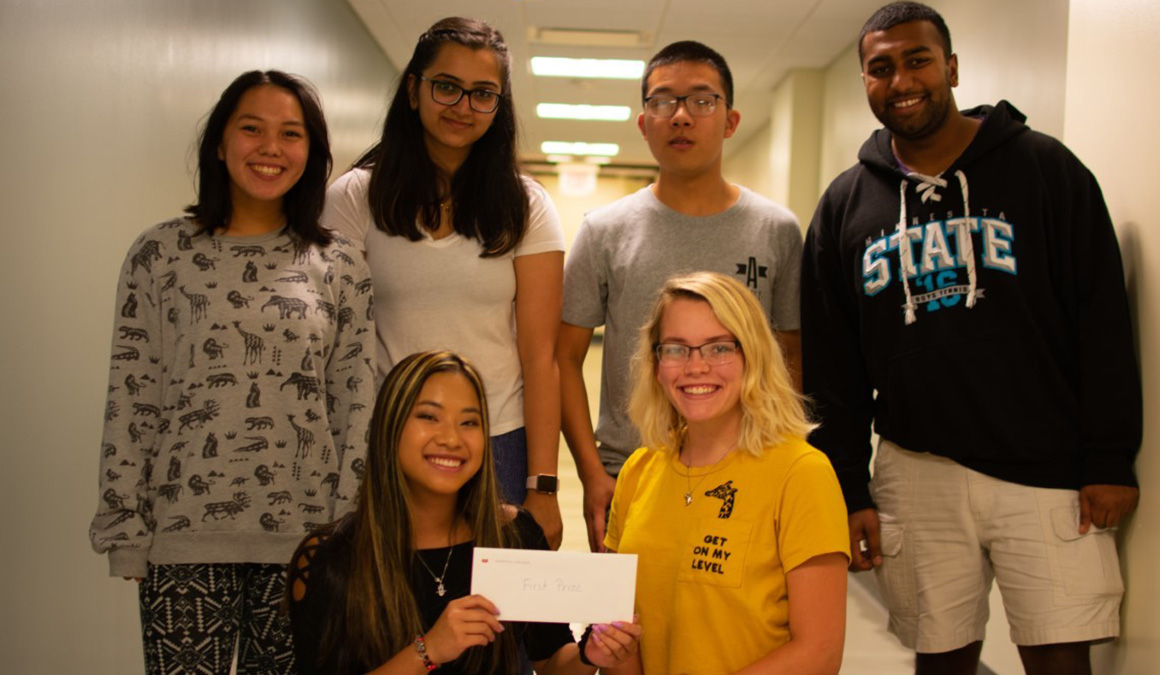Marianna Cota ’22
Connecting life and nature.

Marianna Cota ’22 brings her Indigenous background to science studies.
For biology major Marianna Cota ’22, science isn’t simply about formulas, experiments, and labs. It’s about observing and connecting with the beauty and wonder of life, then utilizing her knowledge to understand and improve the human condition.
“We are all connected. We all come from the same land. That’s how I grew up,” says Cota, who was born in Yuma, Arizona, and now lives in Jacksonville, North Carolina. Her mother is Filipino, and her father, a Marine Corps veteran, is Mexican and Native American, from the Pascua Yaqui tribe.
“There needs to be Indigenous research and that focus inspires me greatly,” says Cota, who was recently accepted to the 4-1 Master of Public Health Cooperative Degree Program with the University of Iowa. Next fall during her final year at Grinnell, she’ll take online courses to begin her master’s in epidemiology, then spend a year on the University of Iowa campus to complete her graduate degree.
“Ultimately I plan to use my MPH to launch a career at the Urban Indian Health Institute, or at one of the 12 nationally recognized tribal epidemiology centers,” she says. “I hope to be a public health analyst or epidemiologist to ensure that Native people get the space and voice that they deserve. There is a Native invisibility in public health and the empowerment of Indigenous communities needs to come from us being in the conversation. We also must be respected and allowed to truly guide and influence the conversation as well.”
 Marianna Cota ’22 is pictured with her fellow Grinnell Science Project assistants and directors at Noyce Science Center early in the 2019-20 school year.
Marianna Cota ’22 is pictured with her fellow Grinnell Science Project assistants and directors at Noyce Science Center early in the 2019-20 school year.
Connection has been important throughout Cota’s Grinnell experience, starting the moment she set foot on campus as a first-year to begin pre-orientation week activities with the Grinnell Science Project (GSP).
“GSP’s aim is to create community and a web of mentoring to set students up for success in the sciences,” explains Cota, “especially from underrepresented groups, like students of color, first-generation college students, and women.” In the past, those groups often weren’t following through with a science track. GSP has aimed to remedy that with mentoring, tutoring services, and other resources for success.
Cota has been a GSP student assistant the past two years, providing support and encouragement to incoming students. “It’s allowed me to grow and develop connections with incredible people from diverse backgrounds. You can learn a lot from others,” she says. “My decision to take a leadership role in the Grinnell Science Project has been my proudest accomplishment, because I can advocate for underrepresented and marginalized students like myself while helping incoming students make a place at Grinnell.”
Cota earned a four-year scholarship to Grinnell as a QuestBridge scholar. The program connects high-achieving, low-income high school students with top academic institutions across the U.S.
And while Cota has mentored other students, she credits several professors and staff who’ve mentored her by providing invaluable support to develop the skills and mindset for personal growth. Cota cites associate professor of psychology Laura Sinnett (her first-year tutorial advisor), professor of biology and Conard Environmental Research Area (CERA) director Vincent “Vince” Eckhart (her current advisor), assistant professor of sociology Sharon Quinsaat, chemistry professor and department chair Thomas (Andy) Mobley, and science lecturer Minna Mahlab, one of the Grinnell Science Project directors.
 Cota and her Grinnell Science Project colleagues were awarded a prize after winning a scavenger hunt during the 2018-19 academic year.
Cota and her Grinnell Science Project colleagues were awarded a prize after winning a scavenger hunt during the 2018-19 academic year.
“My mentors opened my mind to new ideas and possibilities about myself,” says Cota. “I feel that everyone at some point thinks, ‘why am I here?’ And to students of my background, with my identity as Indigenous and my working class background, their support and guidance has been instrumental.”
“You have to feel that what you’re doing matters and that you have the resources to do it, she adds. “My mentors provided that to me.”
Learn more about how the Grinnell Science Project is developing the talents of students interested in science and mathematics.
— by Anne Stein ’84
As students explore issues of responsibility and justice on campus and far beyond, they discover their passions, interests, and life goals. That has been true for Rexford Essilfie ’22 through an internship and campus activities. Matheos Mesfin’s ’14 transformative experience at Grinnell College led him to create the Institute for East African Councils on Higher Education.